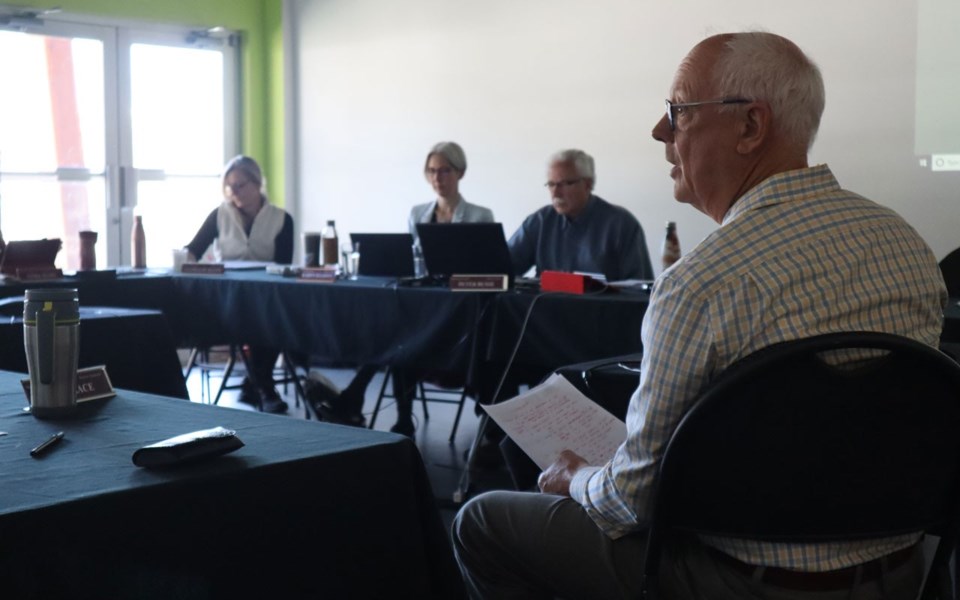A proposal from the developers of WedgeWoods Estates north of Whistler to add some affordable housing to their project is moving ahead with the submission of a formal rezoning application to the Squamish-Lillooet Regional District (SLRD)—but some discussions still remain around the SLRD's Regional Growth Strategy.
The affordable housing types envisioned in the proposal include family-style apartments and townhomes—enough to house 50 to 60 families—and would cater to those who are making good money but having trouble getting into the housing market.
The proposal aims to offer affordable housing by removing the serviced land as a cost component (by offering it on the basis of $1—typically, the land makes up one third of the cost allocation for a development).
The result is a proposed average sale price in WedgeWoods of $420,000 for a 1,350-square-foot townhouse (compared to $603,167 in Pemberton and $1,772,126 in Whistler, based on MLS sales over the past six months), and $270,000 for an 825-square-foot apartment (compared to $409,633 in Pemberton and $627,594 in Whistler).
"We believe strongly that this is a good project, it has a clear community need, and if it's judged on its own merits, it should proceed," said proponent David Earhardt.
The proposal was back before the SLRD board at its Committee of the Whole meeting on April 25, where it was heard that a small portion of the proposed development is not included in the SLRD's Regional Growth Strategy (RGS) mapping, Earhardt said.
With both Whistler and Squamish also requesting changes to their mapping in the RGS, SLRD staff suggested the change to WedgeWoods' own mapping be considered in the same discussion.
The board will discuss the changes to the RGS at its June 26 meeting.
When the proposal was presented to the board at its March 20 meeting, SLRD directors expressed interest, but had concerns about the added density on the highway, and in a community that is lacking services like a grocery store (see
Pique, March 25).
To address some of the concerns heard, in an updated presentation to the Committee of the Whole, the developers proposed the creation of north and southbound lay-bys and bus shelters, a pedestrian-activated highway crossing and a car sharing service for the development.
For fire protection, the creation of a volunteer fire department (with a fire hall and fire truck paid for by the developers) is also proposed.
Whistler director (and acting chair at the April 25 meeting) Jen Ford said she's interested in seeing what staff comes back with in regards to the rezoning, and that she hopes the developers are moving in the right direction.
"I hope (the concerns are) addressed through some definitive planning around what's needed by a community of this size, because this is a pretty significant addition to the bed base there," she said.
Construction on WedgeWoods began in 2008, with the first of six planned phases (constituting 108 lots in total) completed in 2010.
Through the new proposal, the developers stand to gain "a few more single-family market lots," Earhardt said, as well as cheaper infrastructure costs for the entire subdivision.
But the idea was born from the desire to fill a need in the community, Earhardt said.
"We're short two doctors in Whistler, because they don't have housing ... there is fire, there is police, there is the small business owners. There is a huge list of people who have made their lives in Whistler, have been there three years, five years, and really need to be given a break," he said.
"And that's who we're targeting ... they're the heart and soul of the community."
The public will be invited to provide input on the project through a formal public hearing process (details to be announced).
"I hope to hear from the public," Ford said.
"I encourage the public to come out and understand what's being proposed, not only the public in Whistler, (but) in Pemberton, in the rest of the regional area, as well as in WedgeWoods itself, because when you offer a public opportunity to be heard, it's so important that people take that opportunity."




